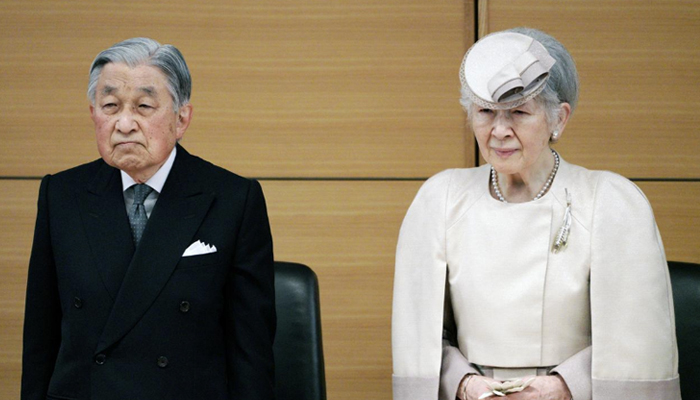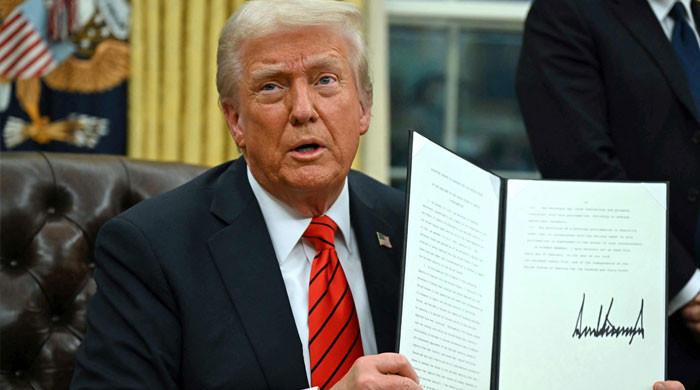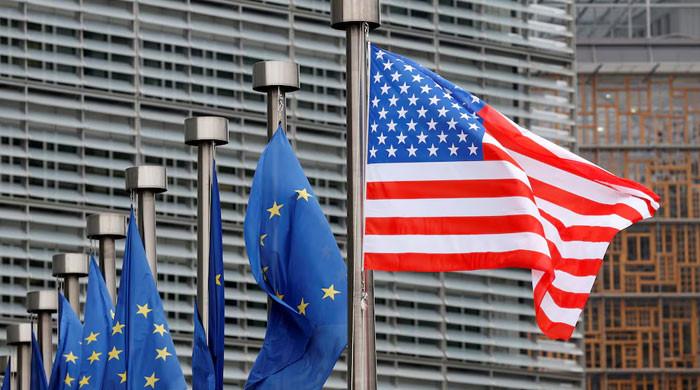Japanese Emperor Akihito abdicating after three decades on throne
Akihito, with Empress Michiko, carved out an active role as a symbol of reconciliation, peace, and democracy
April 30, 2019

TOKYO: Japanese Emperor Akihito will abdicate on Tuesday in favor of his elder son, ending a three-decade reign during which he sought to ease the painful memories of World War Two and reach out to ordinary people, including the marginalized in society.
The abdication, the first by a Japanese monarch in two centuries, will be marked by a brief and relatively simple ceremony in the Imperial Palace’s prestigious Matsu no ma (or Hall of Pine). About 300 people will attend and it will be broadcast live on television.
Akihito, 85, was the first Japanese monarch to take the throne under a post-war constitution that defines the emperor as a symbol of the people without political power.
His father, Hirohito, in whose name Japanese troops fought World War Two, was considered a living deity until after Japan’s 1945 defeat when he renounced his divinity.
Akihito, together with Empress Michiko, his wife of 60 years and the first commoner to marry an imperial heir, carved out an active role as a symbol of reconciliation, peace, and democracy.
Akihito, who has had treatment for prostate cancer and heart surgery, said in a televised address in 2016 that he feared his age would make it hard for him to carry out his duties fully.
On Tuesday morning, Akihito will report his abdication at sanctuaries inside the Imperial Palace grounds, one honouring the sun goddess Amaterasu Omikami, from whom mythology says the imperial line is descended, and two others honouring departed emperors and Shinto gods.
In the afternoon, the abdication ceremony will take place with attendees including Prime Minister Shinzo Abe, Empress Michiko, Crown Prince Naruhito, and Crown Princess Masako as well as the heads of both houses of parliament and Supreme Court justices.
Imperial chamberlains will carry state and privy seals into the room along with two of Japan’s “Three Sacred Treasures” — a sword and a jewel — which together with a mirror are symbols of the throne. They are said to originate in ancient mythology.
Abe will announce the abdication and Akihito will make his final remarks as emperor.
Naruhito, 59, will become emperor in separate ceremonies on May 1. Naruhito, who studied at Oxford, is likely to continue an active role and together with Harvard-educated Masako give the monarchy a cosmopolitan tinge.
April 30 is the last day of the Heisei imperial era, which began on January 8, 1989, after Akihito inherited the throne. The era saw the economic stagnation, natural disasters and rapid technological change.
Akihito officially remains emperor until midnight when the new Reiwa era, meaning “beautiful harmony”, begins.
Traditionally, the Japanese refer to the date by the era name, or “gengo”, a system originally imported from China, on documents, calendars and coins but many people also use the Western calendar.











